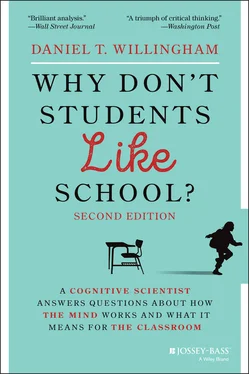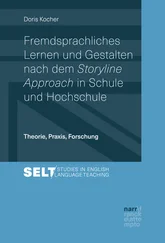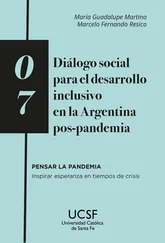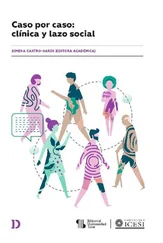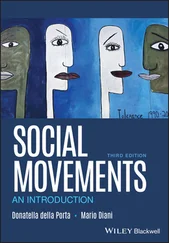—John B. King Jr., 10th U.S. Secretary of Education and President and CEO of The Education Trust
“A rare pairing of intelligible theoretical principles and practical strategies, crafted with teachers in mind. Willingham's book is one that educators can revisit and appreciate anew with every year of teaching.”
—Jasmine Lane, high school English teacher, Minnesota
“Every school teacher and home-schooling caregiver should read this book. A distinguished cognitive scientist and brilliant explainer, Daniel Willingham brings us up to date on the latest science showing how critically important factual knowledge is for a person's competence and success. He shows us exactly how to cause youngsters to LOVE gaining it! A great contribution!”
—E.D. Hirsch Jr., author of How to Educate a Citizen , and founder of the Core Knowledge Foundation
“This second edition of Why Don't Students Like School? comes as COVID-19 has exacerbated longstanding inequities and schooling has become more foundational to helping keep students engaged and hopeful. Willingham's clear explanation of what it takes to learn and think well gives teachers and policymakers a strong blueprint for helping our youth not only tackle COVID's aftermath but thrive.”
—Randi Weingarten, president, American Federation of Teachers
“Willingham's second edition takes us on a deeper dive into the knowledge of the mind; it takes what we now know and presents it in a way that encourages educators to hone their craft. Not only will education be better, students will also benefit with the retention of long-term learning.”
—Patrice M. Bain, EdS, educator and author of Powerful Teaching
DANIEL T. WILLINGHAM
WHY DON’T STUDENTS LIKE SCHOOL?
A COGNITIVE SCIENTIST ANSWERS QUESTIONS ABOUT HOW THE MIND WORKS AND WHAT IT MEANS FOR THE CLASSROOM
Second Edition

Copyright © 2021 by Daniel T. Willingham. All rights reserved.
Jossey-Bass
A Wiley Imprint
111 River St, Hoboken, NJ 07030 www.josseybass.com
No part of this publication may be reproduced, stored in a retrieval system, or transmitted in any form or by any means, electronic, mechanical, photocopying, recording, scanning, or otherwise, except as permitted under Section 107 or 108 of the 1976 United States Copyright Act, without either the prior written permission of the Publisher, or authorization through payment of the appropriate per-copy fee to the Copyright Clearance Center, Inc., 222 Rosewood Drive, Danvers, MA 01923, phone +1 978 750 8400, fax +1 978 750 4470, or on the web at www.copyright.com. Requests to the Publisher for permission should be addressed to the Permissions Department, John Wiley & Sons, Inc., 111 River Street, Hoboken, NJ 07030, phone + 1 201 748 6011, fax +1 201 748 6008, or online at www.wiley.com/go/permissions.
Limit of Liability/Disclaimer of Warranty: Although the publisher and author have used their best efforts in preparing this book, they make no representations or warranties with respect to the accuracy or completeness of the contents of this book and specifically disclaim any implied warranties of merchantability or fitness for a particular purpose. No warranty may be created or extended by sales representatives or written sales materials. The advice and strategies contained herein may not be suitable for your situation. You should consult with a professional where appropriate. Neither the publisher nor author shall be liable for any loss of profit or any other commercial damages, including but not limited to special, incidental, consequential, or other damages.
Jossey-Bass books and products are available through most bookstores. To contact Jossey-Bass directly, call our Customer Care Department within the U.S. at 800-956-7739, outside the U.S. at +1 317 572 3986, or fax +1 317 572 4002.
Wiley also publishes its books in a variety of electronic formats and by print-on-demand. Some material included with standard print versions of this book may not be included in e-books or in print-on-demand. If this book refers to media such as a CD or DVD that is not included in the version you purchased, you may download this material at http://booksupport.wiley.com. For more information about Wiley products, visit www.wiley.com.
Library of Congress Cataloging-in-Publication Data is Available:
ISBN 9781119715665 (paperback)
ISBN 9781119715795 (epdf)
ISBN 9781119715801 (epub)
Cover image: School Desk: © CSA-Archive/Getty Images Student: © A-Digit/Getty Images
Cover design: Wiley
SECOND EDITION
For Trisha
Acknowledgments to the First Edition
Esmond Harmsworth, my literary agent, has been an asset every step of the way, starting with the initial concept. Lesley Iura, Amy Reed, and the whole team at Jossey-Bass showed great expertise and professionalism during the editing and production processes. Anne Carlyle Lindsay was an exceptional help with the artwork in the book. Special thanks go to two anonymous reviewers who went far above and beyond the call of duty in providing extensive and helpful comments on the entire manuscript. Finally, I thank my many friends and colleagues who have generously shared thoughts and ideas and taught me so much about students and education, especially Judy Deloach, Jason Downer, Bridget Hamre, Lisa Hansel, Vikram Jaswal, Angel Lillard, Andy Mashburn, Susan Mintz, Bob Pianta, Trisha Thompson-Willingham, and Ruth Wattenberg.
Acknowledgments to the Second Edition
My thanks to the team at Wiley for their care in the editing and production process. Esmond Harmsworth, my literary agent, has been an asset every step of the way, and I thank Greg Culley for bringing his expertise to the artwork. This book owes much to teachers and researchers who have generously shared their expertise since the publication of the first edition.
Daniel T. Willinghamearned his B.A. degree in psychology from Duke University in 1983 and his Ph.D. degree in cognitive psychology from Harvard University in 1990. He is currently professor of psychology at the University of Virginia, where he has taught since 1992. He is the author of several books, and his writing on education has appeared in 17 languages. In 2017 President Obama appointed him to the National Board for Education Sciences. His website is http://www.danielwillingham.com.
Arguably the greatest mysteries in the universe lie in the three-pound mass of cells, approximately the consistency of oatmeal, that reside in the skull of each of us. It has even been suggested that the brain is so complex that our species is smart enough to fathom everything except what makes us so smart; that is, the brain is so cunningly designed for intelligence that it is too stupid to understand itself. We now know that is not true. The mind is at last yielding its secrets to persistent scientific investigation. We have learned more about how the mind works in the last 25 years than we did in the previous twenty-five hundred.
It would seem that greater knowledge of the mind would yield important benefits to education – after all, education is based on change in the minds of students, so surely understanding the student's cognitive equipment would make teaching easier or more effective. Yet the teachers I know don't believe they've seen much benefit from what psychologists call “the cognitive revolution.” We all read stories in the newspaper about research breakthroughs in learning or problem solving, but it is not clear how each latest advance is supposed to change what a teacher does on Monday morning.
Читать дальше
